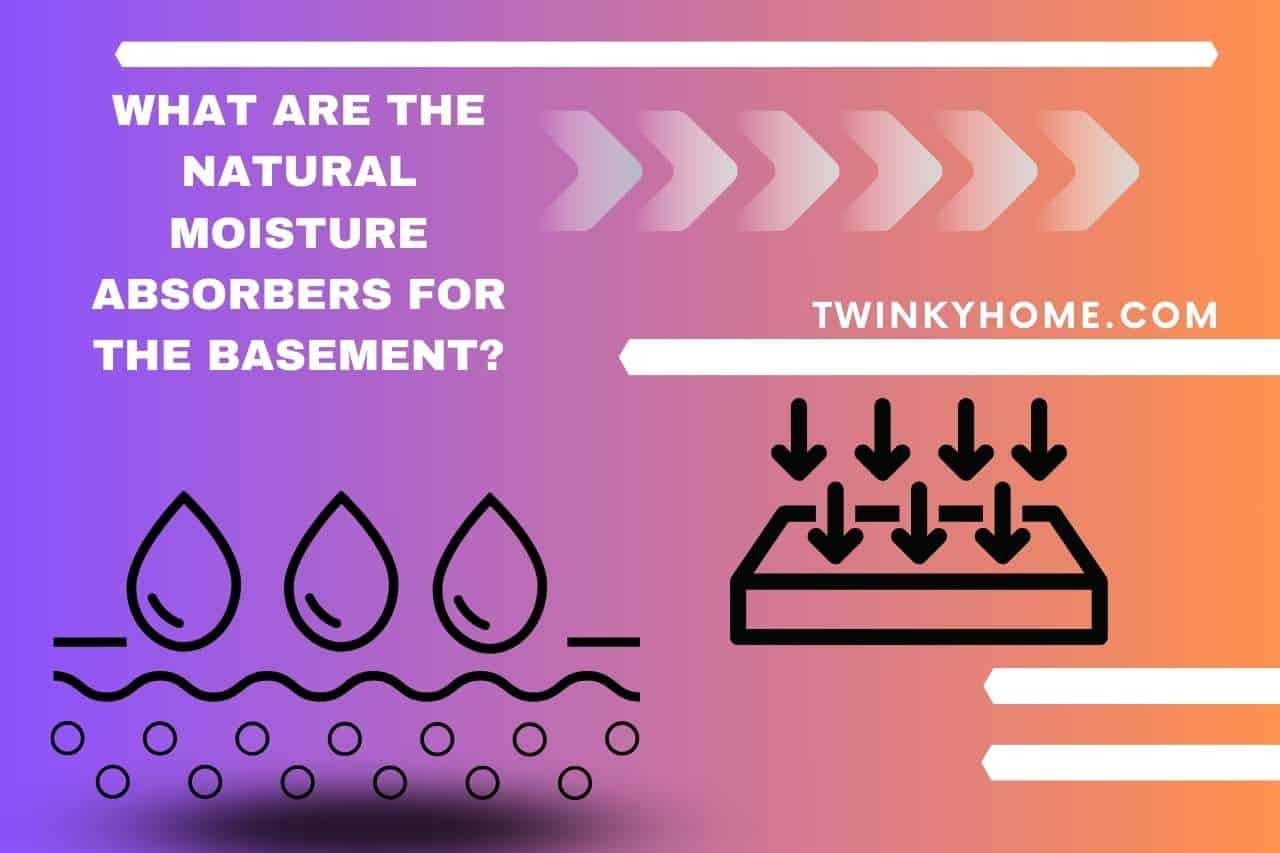This comprehensive guide on “How to Keep Basement Dry Without a Dehumidifier” aims to discover eco-friendly strategies for maintaining a dry basement without relying on costly electronic devices. There is no doubt that the dampness in basements is one of the frustrating issues most homeowners struggle with. Thus, we are going to unveil practical methods and natural absorbers you can use for a consistently dry living space. Without more introductory utterances, let’s start to explore a chemical-free approach to basement moisture control, enhancing both environmental sustainability and home comfort.
Why Does a Basement Need to Be Kept Dry?
Primarily, your basement needs to be kept dry because dampness can cause mold, structural integrity, and so on. Here, we have listed all the consequences caused by moisture in basements so you can realize why you should keep it dry.
- Mold Prevention: Excess moisture promotes mold growth and musty odor, posing health risks and compromising indoor air quality.
- Health and Allergies: A dry basement prevents respiratory issues and allergies associated with black mold and damp conditions.
- Belongings Protection: Controlling humidity safeguards furniture, clothing, and electronics in your basement from moisture-related damage.
- Structural Integrity: Prolonged exposure to moisture can weaken foundations and walls, too, potentially leading to structural damage.
- Pest Control: Dry conditions discourage pests, as many thrive in damp environments.
- Preservation of Property Value: Preventing moisture-related issues helps maintain the value of your property over time.
- Comfortable Living Space: A dry basement contributes to overall home comfort by eliminating odors and creating a pleasant environment.
What Causes Basement Moisture?
Basement moisture can be caused by different construction issues, like the lack of ventilation. To get an idea about each cause, go through the following points.
- Condensation: Temperature differences between the basement and the outside air can lead to condensation, especially on cool surfaces like walls and pipes.
- Poor Ventilation: Inadequate airflow prevents proper moisture dispersion, contributing to damp conditions.
- Leaky Foundations: Cracks or gaps in the foundation allow water seepage, leading to increased moisture levels.
- Inadequate Waterproofing: Lack of waterproofing measures, both on the basement exterior and interior, can result in moisture infiltration.
- Groundwater Seepage: High water tables or heavy rainfall may lead to groundwater seeping through the foundation.
- Appliance Use: Activities such as laundry, cooking, or keeping damp equipment in the basement can release moisture into the air.
- Flooding: Sudden or prolonged flooding events can introduce significant moisture into the basement.
- Poor Grading: Improper slope grading around the foundation may direct water toward the basement, causing moisture issues.
How to Keep the Basement Dry without a Dehumidifier?
You can keep your basement dry without a dehumidifier by improving ventilation and repairing any construction issues that lead to excessive moisture. Let us describe each solution in detail.
- Use Fans and Improve Ventilation: Install fans to enhance airflow and ventilation in the basement. This helps reduce humidity by promoting moisture dispersion.
- Ensure Proper Insulation: Properly insulate walls and pipes to prevent condensation. Insulation helps maintain consistent temperatures and minimizes the risk of moisture accumulation.
- Seal Cracks and Gaps: Identify and seal any cracks or gaps in the foundation to prevent water seepage. This is crucial for avoiding moisture infiltration.
- Install a Sump Pump: In areas prone to flooding or water accumulation, a sump pump can help divert water away from the basement, so consider installing it.
- Improve Grading: Ensure that the grading around your home slopes away from the foundation. This directs water away from the basement, reducing the risk of groundwater seepage.
- Utilize Natural Light: You can allow natural light into the basement to discourage mold growth because mold thrives in dark, damp environments.
- Dehumidify with Natural Ventilation: It is a good practice to open windows and doors during dry, low-humidity periods to let fresh air in and remove stagnant, moist air.
- Monitor and Repair Leaks Promptly: Regularly inspect for leaks in plumbing or foundation and address them promptly to prevent water damage. If you do not have enough knowledge in this regard, hire a professional plumber.
What are the Natural Moisture Absorbers for the Basement?
Several natural moisture absorbers can help control dampness in a basement without relying on electronic devices. These natural moisture absorbers offer a chemical-free and eco-friendly way to manage humidity in your basement. So, here are effective options you can try.
- Rock Salt (Calcium Chloride): Rock salt absorbs moisture from the air. Thus, place bowls of rock salt in strategic locations and replace them as they dissolve.
- Charcoal: Activated charcoal has natural absorptive properties too. Use charcoal briquettes or activated charcoal pouches to absorb excess moisture in the basement.
- Baking Soda: Baking soda not only absorbs odors but also helps reduce humidity. So, open boxes of baking soda or place it in shallow containers around the basement.
- Rice: Rice works as a desiccant and can be placed in pouches or bowls to absorb moisture. Replace or dry the rice regularly to maintain effectiveness.
- Silica Gel Packets: Silica gel, found in many packaged products, absorbs moisture. You can collect and reuse silica gel packets or purchase them for targeted moisture absorption.
- Diatomaceous Earth: Diatomaceous earth is a natural absorbent. Sprinkle it in areas prone to moisture, and vacuum or sweep it up when saturated.
- Activated Alumina: Activated alumina is a desiccant that effectively absorbs moisture. Place it in containers or pouches throughout the basement.
You May Also Like
- How to Drain a Basement Dehumidifier? Step-by-Step Guide
- How Long for Dehumidifier to Dry Basement? Unveiling the Drying Magic!
- How to Clean Basement Dehumidifier? Crystal Clear Air!
- Does Dehumidifier in Basement Help Upstairs? The Ripple Effect!
- Whole House Dehumidifier vs Basement Dehumidifier – Choosing Wisely!
- How to Choose the Right Dehumidifier for the Basement? Basement Bliss!
- Why does My Basement Dehumidifier Ice Up? Decoding Dehumidifier Woes!
- Can you Run Two Dehumidifiers in the Basement? (Ins and Outs)
- How Long Should a Basement Dehumidifier Last? Investing in Comfort!








![OGX Biotin And Collagen Shampoo Review [Updated One] Ogx Biotin And Collagen Shampoo Review](https://twinkyhome.com/wp-content/uploads/2022/03/Are-chicken-Super-Noodles-vegetarian-1-100x70.jpg)